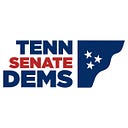Education expert warns against Tennessee voucher expansion
Dr. Josh Cowen joins Sen. Heidi Campbell, Rep. Caleb Hemmer to sound the alarm
NASHVILLE — Nationally recognized education policy expert Dr. Josh Cowen joined Sen. Heidi Campbell (D-Nashville) and Rep. Caleb Hemmer (D-Nashville) to deliver a dire warning about Gov. Bill Lee’s proposal to expand Tennessee’s failing private school voucher program.
Dr. Cowen detailed the devastating consequences of similar programs in other states, underscoring the dangers of this initiative ahead of a special legislative session set to begin January 27.
Dr. Cowen, a professor of education policy at Michigan State University and author of The Privateers: How Billionaires Created a Culture War and Sold School Vouchers, highlighted the failure of voucher schemes to deliver on promises of better educational outcomes.
Instead, Cowen identified three main problems with modern, universal voucher schemes: access favors wealthy families already enrolled in private schools, devastating student performance, and skyrocketing taxpayer costs.
Vouchers mostly benefit wealthy families
One important myth that should be dispelled is that a voucher is a golden ticket for families. Most families will find that restrictive admission policies at private schools prevent most children from benefiting, even with a voucher. Another issue is space. A recent survey of private school enrollment shows that there are only 3,000 to 4,000 vacancies collectively at private schools across the state.
“Eligibility doesn’t mean access and that’s especially true when you talk about these voucher schemes because it’s not ‘school choice’ at all. It’s the school’s choice,” Cowen said. “You can give every parent in the state a coupon, but you’re not forcing those private schools to accept those kids. So the kids who can get into those good private schools are already there.”
Cowen says this gatekeeping is why research from states that have enacted universal voucher programs, like Lee’s proposal, shows that three quarters of voucher users were already in private school before taxpayers started picking up the tab.
Failed Outcomes for Students
Dr. Cowen pointed to research showing that voucher programs not only fail to deliver on promised outcomes but also actively harm student performance.
“These voucher schemes devastate student learning. The bigger and more recent the voucher system, the worse the results are for kids,” Cowen said. “Over the last decade, we see some of the largest test score drops for kids who transfer from public to private school using a voucher that we’ve seen on any question in the history of education research.”
Research shows vouchers do more damage to student test scores than what Hurricane Katrina did to student test scores for kids in Louisiana or what COVID-19 disruptions did to student outcomes across the country, Cowen says.
Gov. Lee’s current voucher program, which is limited to three counties, has shown similar results. Most students never attended a public school and the ones who have taken a voucher are producing lower test scores on average than their public school peers.
The reason, Cowen says, voucher systems produce such dismal academic outcomes is because of “pop-up” private schools open and flood new voucher markets to chase state tax dollars.
“Kids aren’t transferring to the best private school in Tennessee. The typical (voucher) schools are what I call subprime providers — typically financially distressed or pop-up schools that flood the market when states create a new subsidy,” Cowen said. “That’s why I have called vouchers the education equivalent of predatory lending.”
A Budget Disaster
Dr. Cowen stressed that universal voucher programs are also fiscally unsustainable, as evidenced by the financial crises faced by other states.
In Arizona, for instance, the state faced a $1.4 billion budget shortfall, much of which was the result of new voucher spending. Similar issues have arisen in Ohio, where vouchers now account for $1 billion of spending and Ohio House Republican leadership is eyeing a $650 million cut to public school funding. In Arkansas, the governor is steering more than half of the state’s budget surplus to its voucher program — shortchanging other priorities.
“These voucher schemes defund public schools,” Cowen said. “There is no such thing as a free lunch. Somebody is going to pay for this and it’s going to be local school districts that bear the real cost.”
Sen. Campbell and Rep. Hemmer echoed Dr. Cowen’s concerns, emphasizing the need to invest in Tennessee’s public schools instead of dismantling them.
“Tennesseans deserve policies that strengthen public education, not dismantle it for profit,” said Sen. Campbell. “Dr. Cowen’s work shows us what happens when we let private interests prioritize their bottom line over our kids’ futures.”
Rep. Hemmer added, “We are fortunate that a leading expert on this topic like Dr. Cowen is willing to come to Tennessee and share his non-partisan, evidence-based worldview on why vouchers are a scam.”
